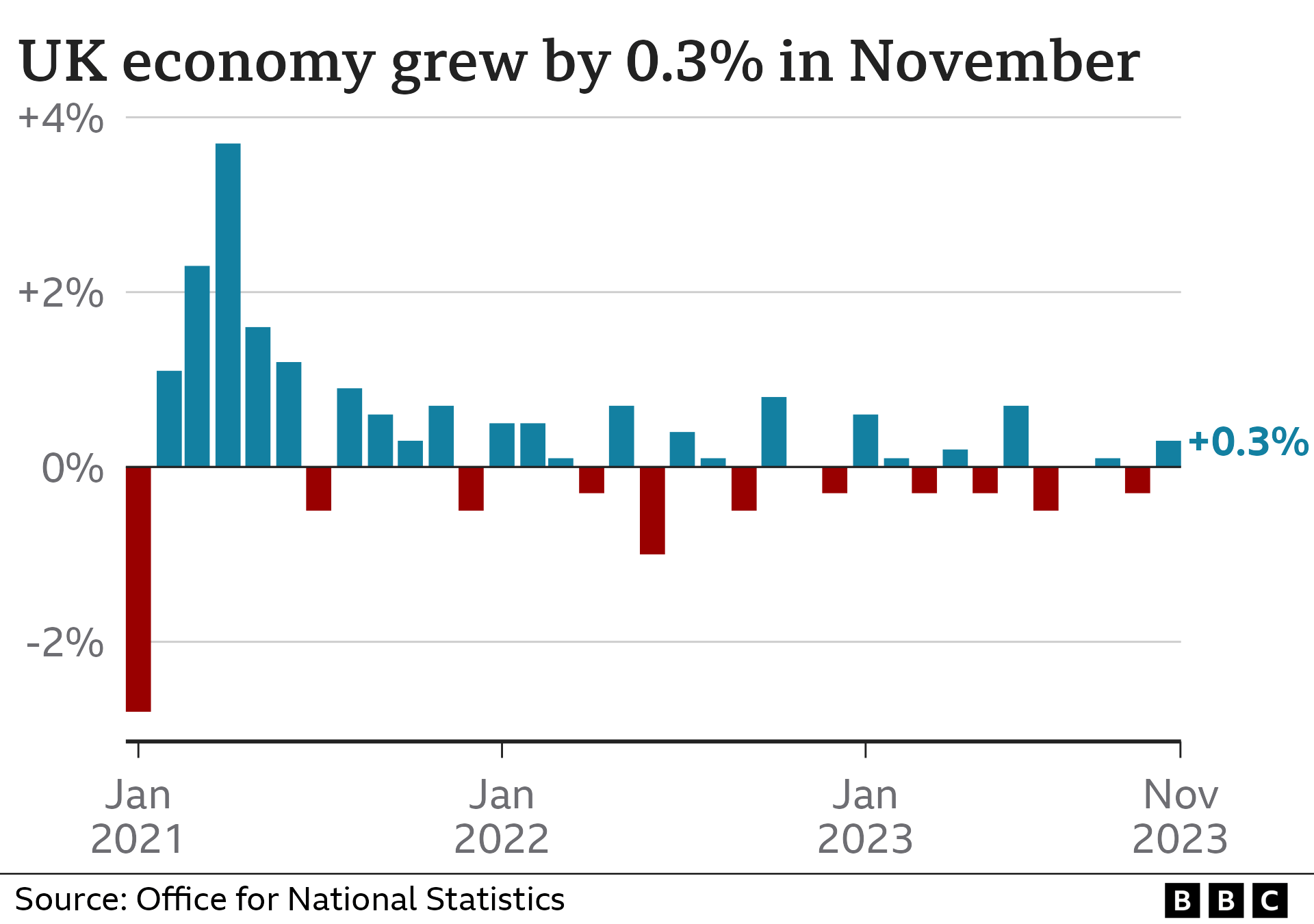Stronger retail sales helped the UK’s economy to rebound in November after it shrank during the previous month.
The economy grew by 0.3% in November, official figures show, which was stronger than expected.
The Office for National Statistics said the services sector led a rebound, with Black Friday sales boosting retailers.
But it said the economy had shown “little growth” over the past year and economists said it was a close call as to whether the UK can avoid recession.
Figures released last year showed the UK was at risk of a slowdown after the economy shrank between July and September.
A recession is typically defined as when the economy shrinks for two three-month periods – or quarters – in a row. The UK economy will meet this criteria if it contracts between October and December.
Grant Fitzner, chief economist at the ONS, told the BBC that November’s rebound was driven by “strong retail sales but also car leasing, computer games and fewer strikes than we’ve seen in previous months”.
“We have had quite a number of companies telling us they saw strong Back Friday sales which had a positive impact not just on the retail sector but also warehousing, couriers and some manufacturing sectors.”

However, while monthly growth was stronger than expected, the UK economy is in a fragile state and the ONS figures showed that in the three months to November, the economy shrank by 0.2%.
For the government’s pledge to grow the economy by the end of 2023 to be met, there will have to be a further expansion of activity between November and December.
But economists predict it will be touch-and-go as to whether the UK can avoid a recession.
Ruth Gregory, deputy chief UK economist at Capital Economics, said November’s rebound “probably means the economy escaped a slowdown in 2023”, but expects zero growth for the final three months of the year.
Growth prospects for 2024 remain uncertain.
Wage growth on average is outpacing inflation but more than a million households face being exposed to higher interest repayments in the coming months as they re-fix mortgages. Businesses that rely on healthy consumer spending are paying the price, with consumer-facing services still over 5% smaller than before the pandemic.
Samuel Tombs at Pantheon Macroeconomics said it is a “coin toss” as to whether the UK avoided a recession at the end of last year.
But he added: “With employment still rising and business and consumer confidence recovering, it would be overblown to label this a recession if GDP did indeed drop slightly”.
The ONS’s Mr Fitzner said: “I think it is important to remember that a recession is not just a very small negative number followed by a very small negative number. It is a significant and sustained fall in output. We don’t expect to see that.”
Responding to the latest growth figures, Chancellor Jeremy Hunt said: “While growth in November is welcome news, it will be slower as we bring inflation back to its 2% target.”
The Bank of England has, until relatively recently, been raising interest rates to cool inflation, which measures the pace at which prices are rising.
While higher interest rates can control inflation, they can also dampen economic growth.
Inflation has slowed to 3.9% in the year to November. While that remains higher that the Bank’s 2% target, calls for interest rate cuts from some are intensifying.
However, Bank of England governor Andrew Bailey has repeatedly said it is too early speculate about possible cuts.
Source: UK economic growth rebounds in November - BBC News
